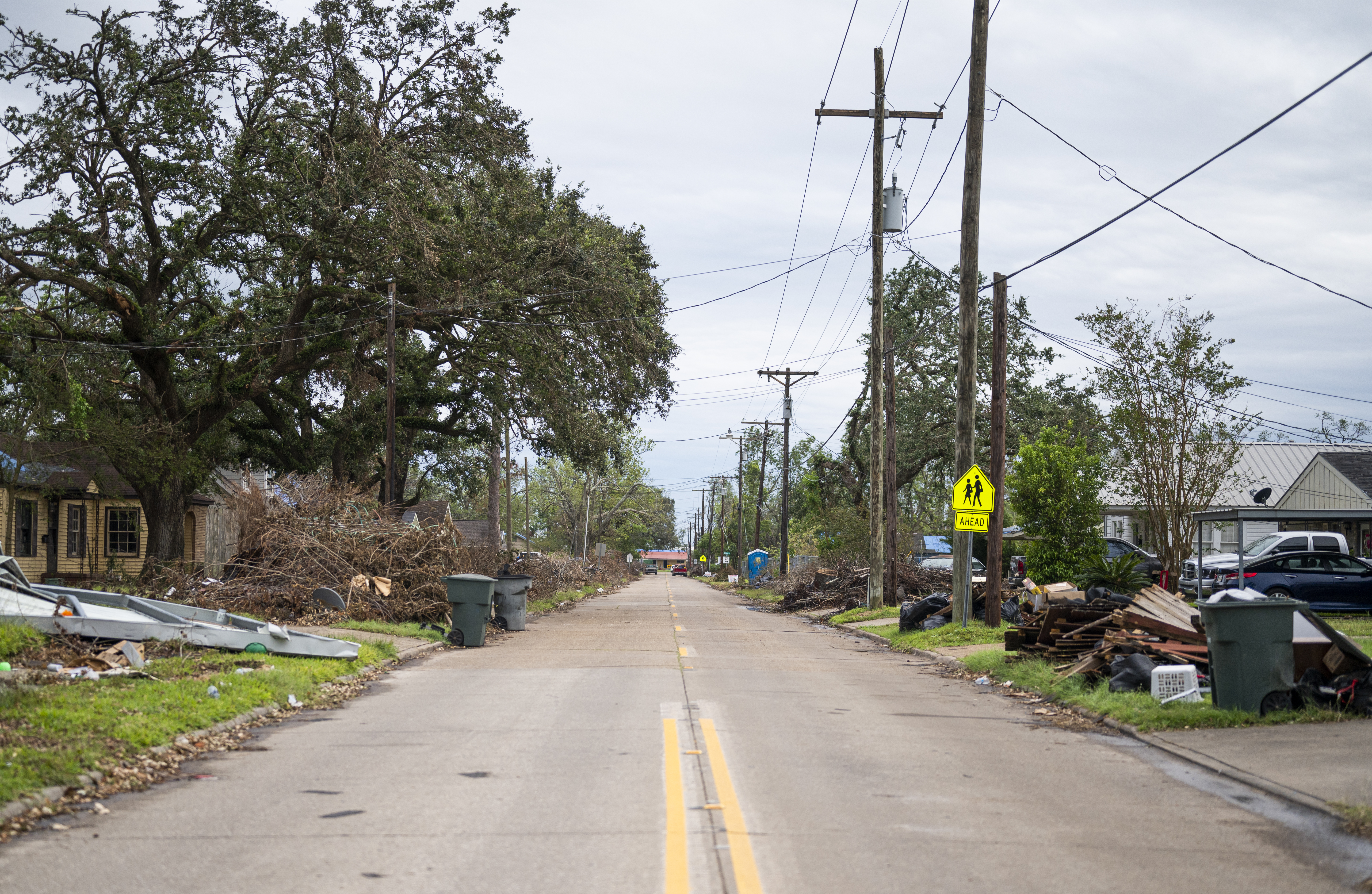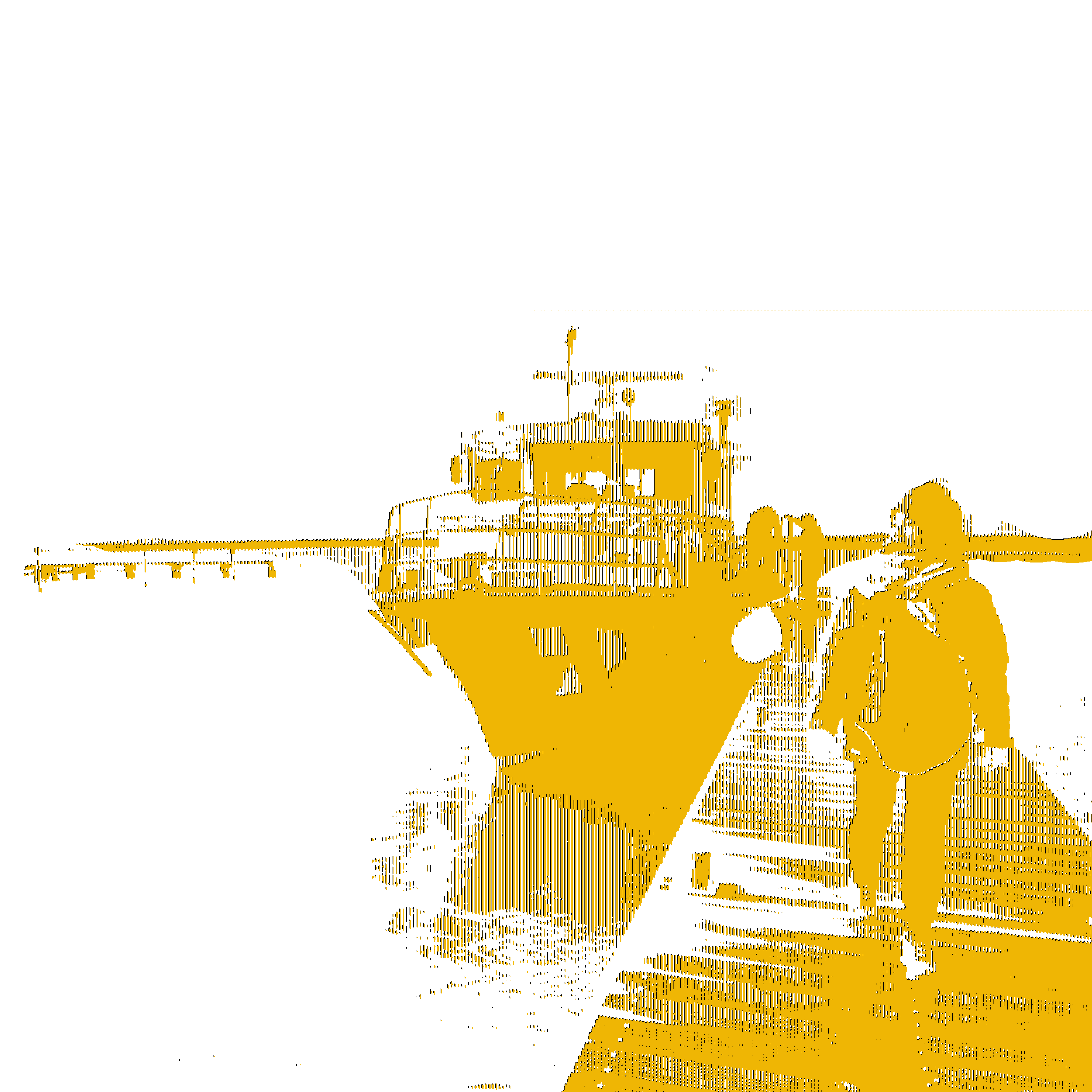YOU ARE NOT ALONE
Resources, stories, and information about mental health and hurricane recovery in southwest Louisiana
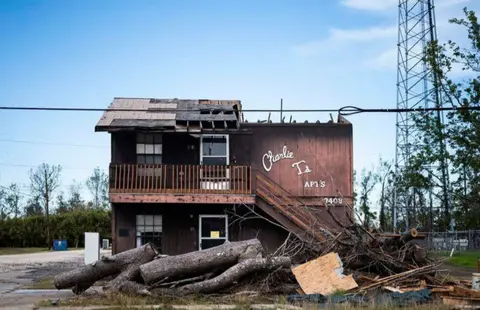
A note from reporter Carly Berlin
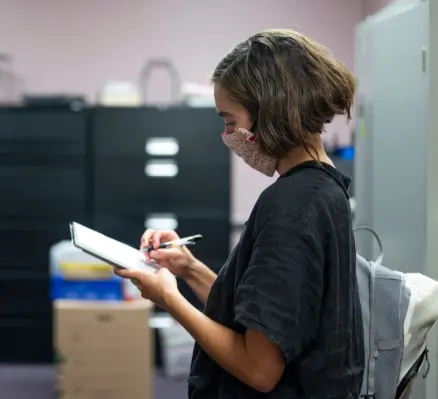
The day after Hurricane Laura hit last August, I drove from my home in New Orleans to the downtown hotels where many southwest Louisiana evacuees were staying. With a face mask on and a notebook and pen in hand, I spoke to families mired in uncertainty: unsure of the state of their homes, their neighborhoods, their jobs. “That’s the hardest thing,” one father told me. “Not knowing if we’ve got anything to go back to.”
As the Gulf Coast Correspondent for Southerly, a digital news outlet covering ecology, justice, and culture in the South, I’ve stayed on this story about storm recovery. I’ve made multiple trips to southwest Louisiana, reporting on the challenges facing voters ahead of the November election, the strain on teachers when schools re-opened last fall, and the unfolding housing crisis.
Many people have opened up to me about the mental health toll they’ve experienced this past year. Losing loved ones to long battles with COVID-19. Bunking up with a dozen relatives, with little personal space. Struggling to find secure housing, or a steady job. Lacking water and power after the winter storm in February. Getting stranded in their cars after the historic flooding in May. Being displaced, away from home. Feeling isolated navigating a crisis during a pandemic that has forced us to stay apart.
That’s why my team and I decided to put together this guide. Inside, you’ll find stories by your neighbors about their mental health challenges. You’ll find information about local, affordable mental health services that we have vetted. You’ll also find links to my ongoing reporting, and ways to get in touch with me if you have ideas for stories I ought to cover.
This past year has stretched every one of us beyond our capacity. That’s probably more true for residents of southwest Louisiana than it is for anyone, anywhere else. You are not alone. I hope the stories resonate, and that you’ll find the resources here helpful—especially as we gear up for another hurricane season. — Carly Berlin
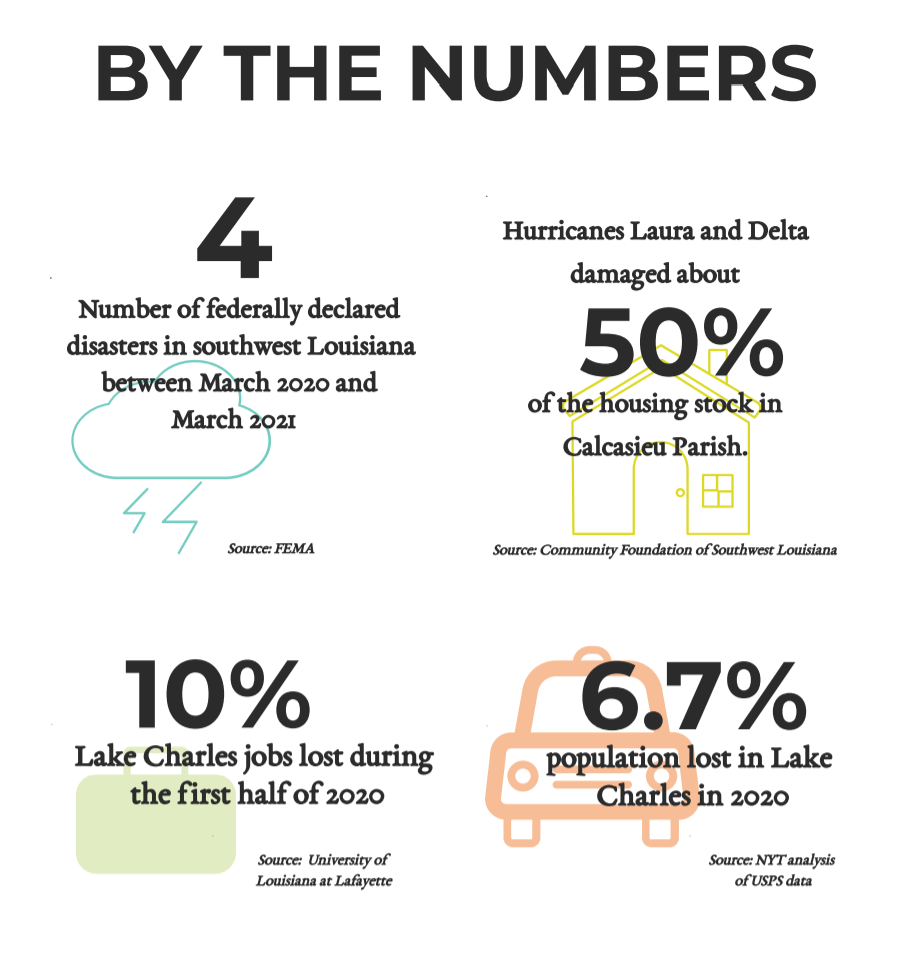
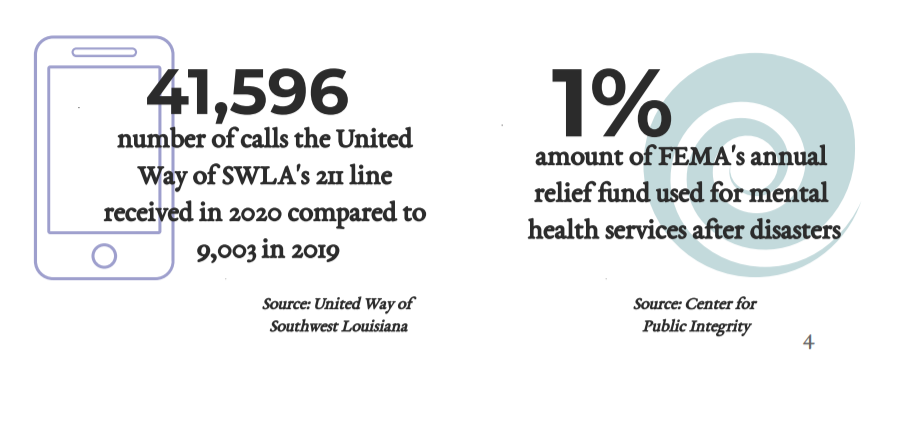

In the weeks after Hurricane Laura, residents were reeling. We were trying to uncover the extent of damage to homes and businesses while deciding when to return to the area. By the time Hurricane Delta hit six weeks later, many of us had returned—even if the return meant that we were living with friends or family—and others were living elsewhere.
On social media in the subsequent weeks, I noticed what I came to refer to as toxic positivity—an effort to remain upbeat in the face of an event that had a significant negative personal impact. Posts about damage to homes and businesses routinely ended with "but other people have it worse." On the surface, such a statement seems to be an acknowledgement of gratitude. However, gratitude and sorrow can exist at the same time. One doesn't negate the other. Silence about personal and large-scale loss can contribute to mental health issues which can't be addressed because they aren't acknowledged. When people reached out for counseling, they often couldn't articulate what was wrong.
The effort to be positive and move forward was so strong that it was clouding the fact that the storms had taken their toll. Two things can be true at the same time. It is okay to feel both sorrow for loss and gratitude that the situation was manageable.
Kevin Yaudes
There was also a stigma around mental health. I heard many times "I can handle this myself" or "This is a family matter." The general thinking was that if you are strong enough, then you will be able to get through anything. However, even for those with solid coping mechanisms and a strong support system, a series of significant events can create a situation in which coping skills and support systems fail. In the work that I do with suicide prevention, I hear this as "I could never kill myself." The fact is you don't know what you are capable of given the right set of wrong circumstances.
And many in the Lake Charles area were there. Nothing could have prepared residents for the emotional toll of back-to-back hurricanes. As money became available for hurricane recovery, mental health services and resources came back online. New opportunities became available to receive services. But as with housing, businesses, and infrastructure, recovery from the mental health crisis created by the hurricanes will take years.
Stories from your neighbors and community members
We featured Miller and Morgan in our reporting on hurricane recovery and displacement. Here's what they said about how the pandemic and hurricanes have impacted their mental health.
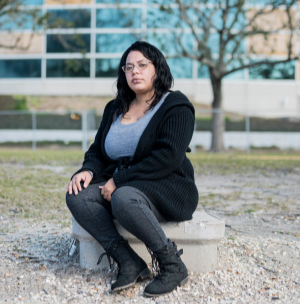
Miller is a single mother who was evicted from her apartment after Hurricane Laura.
“I still have some depression and anxiety that I deal with. I have to isolate myself, maybe in a closet, to deal with it. Be quiet for a good 20 minutes to think to myself. I do write a lot in a journal. That helps me. I read books. Teaching my daughter some things, too. I just hope it doesn't get more stressful. But right now I'm able to function, I'm able to get up in the morning. At some times, I didn't want to. After Hurricane Laura, I couldn’t get up—I wouldn't get up. I’d just lay there. But now, I bring my daughter to school, go to work, come back. We read books. We pray together before it's time to go to sleep. I'm doing a lot of praying, that's really my strength. I did feel like, at one point, I wanted to give up. I just didn't want to do it anymore. And I called, I talked to the person on the crisis line. And they got me through it. It helped. They reminded me of things that I need to be reminded of. That I have a daughter to take care of. And I'll be leaving her. And I wouldn't want to do that.”
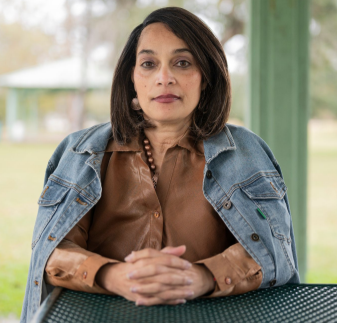
Morgan is a teacher at LaGrange High School.
“This has been so much to really take in. COVID and then two storms back to back. Like I said, some still don't have housing, and I'm one of them. So it is a lot, it's a lot to deal with every day. And, you know, you just don't have everything in place--like your life, your personal life. I talk to my students. I wanted to share with them what I was going through because I didn't want them to feel that they were alone in that situation. So I'm transparent. I allow them to know, you know, Dr. Morgan is displaced too. And when you’re displaced, you're considered homeless.”
WHERE TO ACCESS HELP
We've spoken to each of these service providers about what they're offering the southwest Louisiana community.
Kay Doré Counseling Clinic
SERVICES: Individual one-on-one counseling, couples counseling, family counseling, and group counseling. Sessions are conducted by graduate students in the Master of Arts, Counseling Psychology program at McNeese State University under the supervision of a licensed professional counselor.
COST: $20 per session.
WHO IS ELIGIBLE: All residents of Allen, Beauregard, Calcasieu, Cameron, and Jeff Davis parishes.
CONTACT: Call 337-475-5981 to set up an initial appointment
Imperial Calcasieu Human Services Authority
SERVICES: Imperial Calcasieu Human Services Authority provides services for mental health, behavioral health, substance abuse, developmental disabilities, as well as integrated primary care.
COST: Takes insurance, or sliding scale based on income (10-90% covered, or free). Also has a Medicaid application center.
WHO IS ELIGIBLE: All residents of Allen, Beauregard, Calcasieu, Cameron, and Jeff Davis parishes.
CONTACT: https://imcalhsa.org/ (phone numbers to each location available) or email [email protected]. Crisis hotline: (800) 272-8367.
Other Resources
"Keep Calm Through COVID" hotline operated by Louisiana Department of Health: 1-866-310-7977
National Suicide Prevention Lifeline: 1-800-273-8255
LQBTQ specific - Trevor Lifeline: 1-866-488-7386


